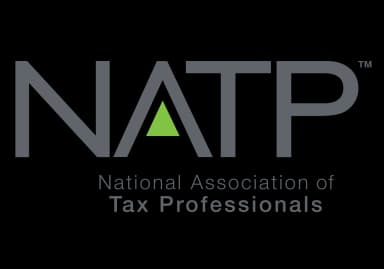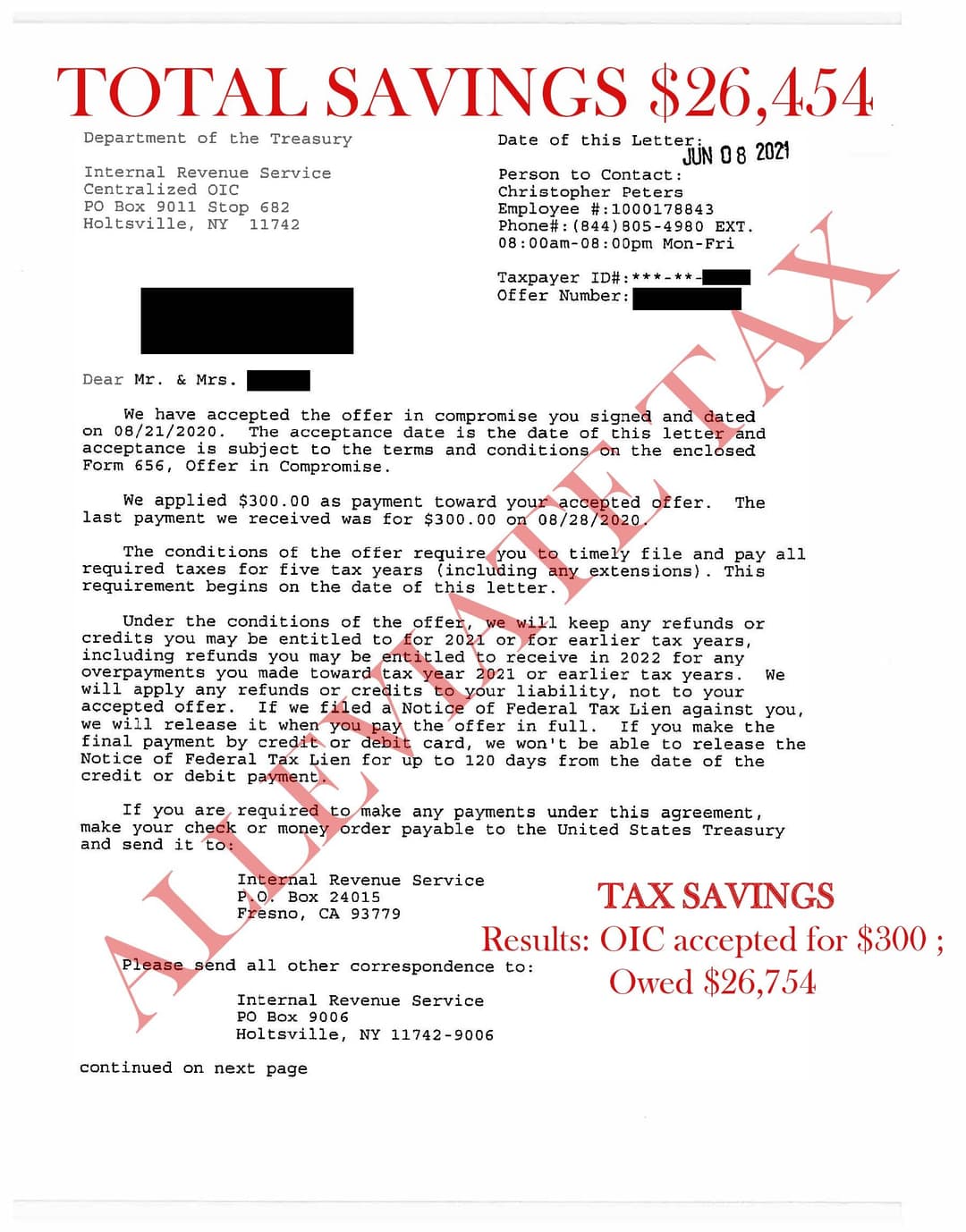Resolve Your Tax Debt with the IRS and Get Them Off Your Back For Good
Professional tax relief services that can substantially reduce your tax liability, possibly saving you tens of thousands in penalties, interest, and fees.
Trusted & Recognized By





What We've Done for Our Clients
Real results from helping thousands of Americans resolve their tax debt
Tax Debt Resolved
Total since 2018
Tax Years Filed
Helping clients get compliant
Tax Professionals
Dedicated to your success
Years Combined Experience
Resolving Tax Debt
Our Tax Relief Services
Comprehensive solutions to resolve your tax issues and get you back on track
Tax Relief Services
Substantially reduce your tax liability and save thousands in penalties, interest, and fees.
Learn More →Offer in Compromise
Settle your tax debt for less than the full amount owed if you qualify for this program.
Learn More →Penalty Abatement
Remove hefty penalties and accompanying interest through professional negotiation.
Learn More →Wage Garnishment Removal
Stop the IRS from taking up to 70% of your gross income and get back in control.
Learn More →Delinquent Tax Returns
Get back into compliance by filing past returns with optimized results.
Learn More →Installment Agreements
Negotiate reasonable payment plans based on your circumstances.
Learn More →Our Process
Simple, transparent steps to resolve your tax issues
FREE Discovery Call
Free discovery call to find out more about your tax debt situation.
Phase 1: Investigation
Initiate client protection, establish communication with IRS, and review case summary options.
Phase 2: Resolution
Fight to get you the best IRS resolution possible so you can get your case closed and obtain freedom!
Why Choose Alleviate Tax?
We're committed to bringing comfort and ease to your tax situation
We Are Secure & Trusted
Your information is protected with the highest security standards. We are accredited by BBB and trusted by thousands of clients nationwide.
We Are Quality
Our team of tax professionals has helped resolve over $500M+ in tax debt. We fight to get you the best possible outcome.
We Are Tax Relief Experts
With years of experience and deep knowledge of IRS procedures, we know how to navigate complex tax situations and get results.
Hear From Our Clients
Anthony C.
Real Results We've Achieved
Real documents showing the settlements we've achieved for our clients

Offer in Compromise Accepted
See How We've Helped Thousands
Explore our complete collection of client testimonials, documented IRS settlements, and success stories
View All Success StoriesTell Us About Your Situation
If you've been receiving threatening letters from the IRS for an amount that seems impossible, don't fear, there is hope! At Alleviate Tax, our mission is to help you reduce your tax debt to the smallest dollar amount possible.